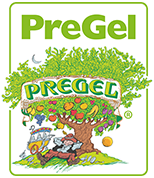
During times like these, getting the most for your money is important, but what about getting the most for your body as well? There are many nutrients and dietary components that occur naturally in our everyday foods that provide great health benefits. Capitalizing on these benefits, more and more food companies are now offering supplements, also known as functional foods, to their existing products to offer a healthier product. For example, calcium is a nutrient that occurs naturally in milk-based products and now it can be found added to items such as orange juice and oatmeal. Without compromising flavor and with added health boosts, functional foods are making a big impact in the food industry.

According to the International Food Information Council Foundation, knowing the health benefits of “functional foods” can help you take greater control of the food choices you make.1 Not only can these functional foods boost your health, but they can boost your business as well. Own a gelato shop? Why not offer a “functional flavor of the month” with one of these additions blended in. Just want to enhance your daily diet? Most of these functional foods can be found at your local health food store to give you a needed boost. So let’s talk about some of the main functional foods and their benefits.
Antioxidants
Antioxidants help protect cells against oxidation damage, which can be caused by the environment, pollution or smoke. They are crucial for our immune systems and help regulate metabolism.2 Look for antioxidant-rich products that include pomegranate, goji, acai, green tea, zinc, Echinacea, selenium or vitamins A, C and E.
Fiber
Fiber is found naturally in fruits, vegetables and grains but can also be found as a powder supplement or as a tablet. Because fiber exists in both soluble and insoluble forms, it can be added to foods and drinks without changing the taste. Aiding in the protection against heart disease and diabetes, fiber also contributes to a healthy digestive track.
Carotenoids
Beta-carotene, responsible for some of the coloring in fruits and vegetables, is the most prominent form of carotenoids, which can help protect cells, increase cellular antioxidant defenses and maintain healthy vision. However, while it’s not recommended to take high dosages of carotenoid supplements, they are acceptable in moderate amounts.3
Flavonoids
Another group of functional foods that can help prevent cell damage and contribute to a healthy heart are flavonoids.4Found in foods such as chocolate, cherries, peanuts and wine, flavonoids make up one of the largest classes of antioxidants and are effective for boosting brain, cell and heart health.
Isothiocyanates
Isothiocyanates may not be familiar (or easy to pronounce), but their mineral elements are very well known. Isothiocyanates include calcium, magnesium, potassium and selenium, which have a range of health benefits, from reducing the risk of osteoporosis by improving bone health to reducing the risk of high blood pressure and stroke.These minerals can be found commonly in foods such as yogurt, spinach, potatoes, grains, breads, bananas, fish and garlic, or as a dietary supplement in any supermarket, drugstore or health food store.5
Protein
Protein is required for the structure, function and regulation of the body’s cells, enzymes, hormones, tissues and organs. Eggs, meat, poultry, grains, vegetables and nuts are excellent sources of protein; however, powdered supplements are available as well and easily mix into drinks and soft foods. Types of protein to look for include egg protein, whey protein and the vegan alternative, soy protein.
Caffeine
In need of a little extra energy? Most people turn to caffeine found in coffee, tea and chocolate; however, other naturally occurring energy sources include guarana, yerba mate and ginseng, all of which are believed to increase energy, brain function and mental alertness.
With numerous functional foods available, it’s important to understand their benefits, but it’s also important to speak to your local health food store or physician about any questions or concerns you may have. Before adding a functional food to your diet or product, research the supplement. Even functional foods should be taken in moderation. It’s no secret that a well-balanced diet, loaded with nutrients, protein, vitamins and antioxidants can provide the necessary tools that your body needs to repair itself and run like a well-oiled machine.
References:
1 I nternational Food Information Council Foundation. ific.org/nutrition/functional/ index.cfm.
2 Warner, Jennifer. Food-aceuticals: Drink and Eat to Your Health, medicineNet.com 2009.
3,5 George Mateljan Foundation. whfoods.com/genpage.php?tname= nutrient&dbid=116.
4 Lerche Davis, Jeanie. How Antioxidants Work, medicinenet.com, April 22, 2005. Sources:
webmd.com
medicinenet.com
livescience.com
energyfortoday.com
